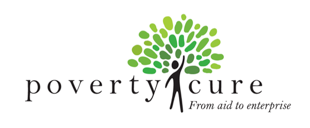Business as Missions vs. Tentmaker Missions
The business-as-mission entrepreneur is related to but distinct from the “tentmaker” missionary. Both are self-supported, and both involve representing Christ in the workplace. However, the primary reason the tentmaker missionary takes a paying job in the mission field is to pay for his mission work, whereas the business venture that epitomizes BAM serves as the primary context for the mission witness.
In business as mission, the mission is worked out in and through the business, through its activities, through the products and services, and through relationships created and nurtured in building and doing business. The businesses themselves, and daily life in these businesses, become the channels for embodying and communicating the good news of Jesus to “all nations.”
Johnson emphasizes that it isn’t a simple matter of one approach being superior to the other. For some considering self-supported mission work, the tentmaker model will best fit their talents and opportunities. For others (as in the case of Christians with entrepreneurial talent and experience) the business-as-mission model may afford the greatest opportunities for spreading the Gospel and advancing the kingdom.
Business as a Mission – Objectives of the BAM Entrepreneur
- Create jobs and provide dignified work for poor or marginalized communities.
- Profitably introduce essential goods or services into an impoverished community.
- Model good environmental stewardship, including the wise use of natural resources.
- Transfer skills and training, spinning off new businesses and encouraging entrepreneurship.
- Through skilled and honest business leadership, become a respected and influential voice in the community.
- Model biblical principles and sound business ethics.
- Become a witness of Jesus in word and deed in the context of everyday life.
- Disciple newer Christians through the organic relationships arising from business activity.
- Strengthen the local church, helping to establish new church plants or providing economic stability for believers.
- Use some of the business’s profits to fund community or church projects
The Business as Mission website concludes its summary of BAM this way:
Business has tremendous potential as a force for good, to tackle poverty, to stimulate local economies, to bring social and environment improvements and to carry the message of eternal hope to people and places which are often otherwise beyond reach. And because a profitable business is self-sustaining, it can help to bring about sustainable social, economic, environmental and spiritual transformation.


